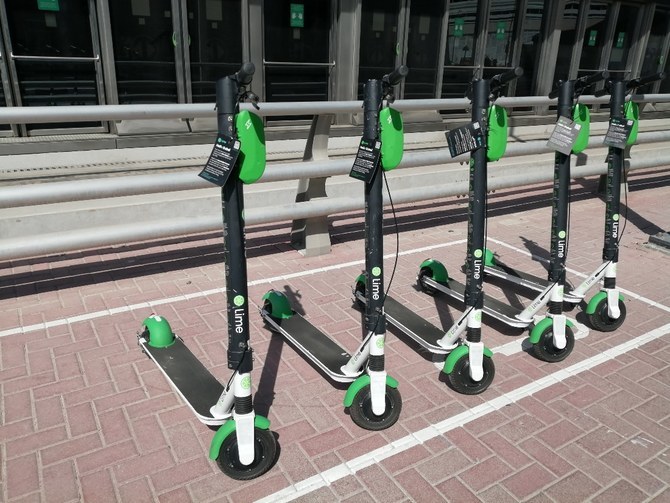
For years, the financial situation of the Palestinian Authority (PA) has teetered on the brink of collapse. The heyday of the Oslo years, during which the Palestinian economy was looking up, is long gone. A consequence of the Second Intifada that broke out 20 years ago was that the Palestinian economy suffered a sharp and painful deterioration, characterized by violence, destruction, and the entrenchment of Israel’s harsh occupation and oppressive actions. But it was also due to a lack of good and accountable governance from the PA. Divisions between the West Bank and Gaza further harmed Palestinian society and its economy, discouraging foreign investment and stunting economic development.
The lion’s share of the PA’s income originated from tax transfers from Israel, as agreed back in 1994 in the Paris Protocol. Hence, when President Mahmoud Abbas announced in June that the PA would no longer accept tax revenue transfers from Israel — in an expression of anger over Tel Aviv’s intention to annex parts of the West Bank — it felt like a case of the Palestinian leadership cutting off its nose to spite its face. So it was only a matter of time before this decision would be reversed, as it was late last month.
Services under the PA are semi-functioning at the best of times. Without the taxes collected by Israel on its behalf, the salaries of civil servants in the West Bank and Gaza were not paid, threatening not only further economic deterioration, but also running the risk of political instability and widespread malaise.
Understandably, tensions between the Israeli government and the PA’s leadership reached a new peak as a result of Israeli Prime Minister Benjamin Netanyahu’s promise to his voters to annex large parts of the West Bank. For Abbas, as for most Palestinians, this was the last straw, leading him to announce that Palestine was now “absolved of all understandings and agreements with Israel,” including security cooperation. Stopping security cooperation with Israel had its logic and is probably the most effective deterrent the Palestinians have in their armory, considering that such cooperation serves the security interests of a country that has expressed its intention to annex large parts of their land and, with that, render the prospect of a viable independent Palestinian state a mere hypothetical option. Nevertheless, the Palestinian leadership’s refusal to accept money that belongs to its people while increasing numbers of them are becoming poverty-stricken lacked similar logic.
The coronavirus disease (COVID-19) pandemic could not have come at a worse time for the Occupied Territories. According to UN figures, even before the virus reached Palestine, the economies that sustain a population of more than 5 million people in Gaza and the West Bank were projected to shrink this year and next year to the tune of 3 to 4 percent in gross domestic product (GDP) per capita terms. The pandemic also resulted in a drop in demand for Palestinian labor in Israel and the Jewish settlements in the West Bank. Furthermore, there has been genuine concern that Palestinians working in Israel and the Jewish settlements — at least initially, as cases of COVID-19 were soaring there — would spread the virus to the West Bank, with dire economic and public health consequences.
The return of tax revenues is not going to turn the Palestinian economy around itself, but it is a first step.
Yossi Mekelberg
Without exonerating the divided Palestinian leaderships of responsibility for both the political and economic situation they are in, there are many factors that are beyond their influence or control. The Palestinian economy suffers immensely from its dependency on external forces, especially Israel, which, by virtue of its occupation of the West Bank and blockade of Gaza, is almost complete. Moreover, a punitive American administration over the last four years saw Washington cut off all financial aid, while the EU remained indifferent to the changing circumstances of the Palestinians and opted to stay on the sidelines. And, even in the region, priorities have changed vis-a-vis the Palestinians. The result was that, in 2019, real GDP grew by less than 1 percent — similar to the two previous years — while Gaza’s rate of growth was zero after two consecutive years of significant contraction.
One of the tools that Israel has to coerce the PA’s leadership to yield to its whims is the transfer of tax revenues. The Paris Protocol between Israel and the Palestine Liberation Organization was aimed at governing Palestinian economic policies in relation to taxation, customs and trade, with the objective, at least in theory, of strengthening the Palestinian economy’s standing by establishing a customs union with its neighbor — a much more developed economy that has successful trade relations across the world. But, since the collapse of the peace process, which never reached its goal of a two-state solution, the Palestinians have found themselves in a situation in which they enjoy no autonomy regarding their economy or almost any other sphere of their lives. For Israel, the occupation has become not only an issue of territorial expansion or security, but also a profitable economic tool and, in many cases, a whip to control Palestinian financial and trade policies. Up to 90 percent of Palestinian trade is done with Israel and it represents three-quarters of the Palestinian trade deficit, which demonstrates the imbalance in power between the two.
It was its normalization of relations with Arab states, first with the UAE and then Bahrain, that enabled Israel to climb down from the folly of the annexation plan, and consequently for the PA to abandon its self-defeating refusal to accept tax revenues that belong to its people by law. This move is not going to turn the Palestinian economy around itself, but it is a first step. Now that Sudan and Morocco have also joined the normalization trajectory with Israel, and Donald Trump is on his way out of the White House, this small but significant action could mark the start of a concerted effort to ease the occupation and blockade, and thereby improve living conditions in the West Bank and Gaza.
• Yossi Mekelberg is professor of international relations at Regent’s University London, where he is head of the International Relations and Social Sciences Program. He is also an associate fellow of the MENA Program at Chatham House. He is a regular contributor to the international written and electronic media. Twitter: @YMekelberg
Disclaimer: Views expressed by writers in this section are their own and do not necessarily reflect Arab News" point-of-view












